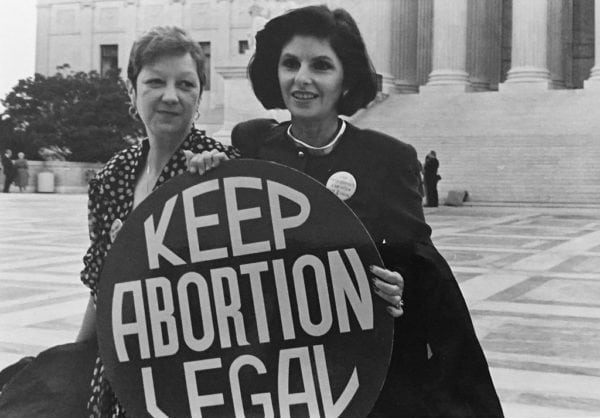
June 28, 2018; New York Times, Washington Post, and NPR
As the Supreme Court announced its final decisions of the session on Wednesday morning, veteran court watchers held their breath, then sighed in relief at what seemed the end of major announcements. But then, two hours into the afternoon, their relief was shattered as word came that Justice Anthony Kennedy, the “swing vote” on the court, had just come from the White House having delivered his resignation to President Trump. Social media newsfeeds were filled with this story and speculation about the “ultra-conservative” that Trump would nominate to fill his seat.
And, if truth be told, President Trump, did, indeed, pull out his list of 25 names that he had used in 2017 (developed by the Heritage Foundation) to nominate Neil Gorsuch to the Court. Writing for the Washington Post, Robert Barnes says of the names on this list: “All are more conservative than Kennedy, and any replacement will move the court to the right and place [Chief Justice Roberts] in the pivotal role on the nine-member court. Roberts, 63, also has shown himself to be well to the right of Kennedy.”
The nonprofit community should pay close attention to this nomination process as it unfolds. Justice Kennedy played a key role in a number of decisions that might unravel with an even more conservative court passing judgement. President Trump has indicated that his litmus test for a Supreme Court Justice is that they must be ready to do away with abortion rights (Roe v. Wade) and the Affordable Care Act (health care for all) and must support gun rights. These were all areas where Justice Kennedy could be swayed and often came through. Kennedy’s positions on LGBTQ rights may be his defining moments.
Kennedy’s legacy on the court probably will be defined to a great extent by the decisions he wrote championing gay rights: striking down discrimination, restrictions on sodomy and the federal government’s position of not recognizing legal same-sex marriages.
The culmination was his opinion in Obergefell v. Hodges in 2015, in which the court’s four liberals joined him in finding that it violated the Constitution for states to offer marriage licenses only to heterosexual couples.
Sign up for our free newsletters
Subscribe to NPQ's newsletters to have our top stories delivered directly to your inbox.
By signing up, you agree to our privacy policy and terms of use, and to receive messages from NPQ and our partners.
“The limitation of marriage to opposite-sex couples may long have seemed natural and just, but its inconsistency with the central meaning of the fundamental right to marry is now manifest,” he wrote. “With that knowledge must come the recognition that laws excluding same-sex couples from the marriage right impose stigma and injury of the kind prohibited by our basic charter.”
Some other areas that could become targets with a new, more conservative justice in place of Kennedy would include affirmative action and the death penalty. If you extrapolate his decisions and look at how Justice Kennedy approached the law and the Constitution, you will have a sense of what may be lost in this next judicial nomination.
In general, there is probably no greater example of Kennedy’s approach to the law, and how it will almost certainly differ from Trump’s nominee, than the question of how to interpret the Constitution: whether the Founding Fathers intended their creation as a static document, bound by the literal meaning of its words, or whether those words represent concepts of liberty to be interpreted over time.
In a 2003 decision that struck down a Texas law criminalizing private homosexual conduct, Kennedy said that the Founders understood that they were writing a document for the ages.
“They knew time can blind us to certain truths,” he wrote in Lawrence v. Texas, “and later generations can see that laws, once thought necessary and proper, in fact serve only to oppress.”
Clearly there is a lot at stake. And while Democratic and Republican politicians will fight political battles over when this nomination should or should not be considered, the people who will be most affected by the end result should know that this is their decision, too. As Nancy Pelosi said, “Make no mistake: Republicans now have the opportunity to erase a generation of progress for women’s rights, LGBTQ rights, civil rights, workers’ rights and health care.” If these issues and others do hang in the balance, then all of us need to scrutinize the background of whomever is nominated. And, to complement that, we should be asking our Senators to do the same—not just vote a party line, but vote a “people” line when it comes to something this important. If enough voices are raised, perhaps our senators will listen. A lot of hard-fought rights are at stake.—Carole Levine













